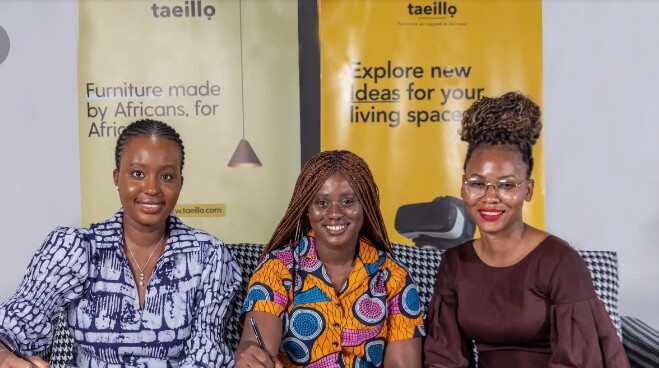Aruwa Capital, a Nigerian early-stage growth equity and gender-lens fund, has given Taeillo $2.5 million in “expansion” capital for its online furniture e-commerce site.
Taeillo is a Lagos-based company that innovates around time, quality, and cost.
According to a statement from Taeillo, it is an alternative for people who have to wait three to six months to get their furniture and pay a lot of money to import it (plus the exchange rate is uncertain). It went on to say, “We give customers nice-looking furniture pieces at a fraction of the cost of importing them and in about 4–8 weeks instead of 12–16 weeks.”
Furniture can be purchased in Africa through regional furniture shops or from international furniture merchants like Ikea. But both options have advantages and disadvantages. For the latter, local furniture stores might not meet customers’ standards, while international retailers might be too expensive and take too long to ship their goods to Africa.
Dada’s platform had just businesses as its target market when it first began. As seed money for the first product, investors like CcHUB Growth Capital, Montane Capital, and B-Knight gave $165,000. During the pandemic, however, Taeillo switched to a direct-to-consumer strategy in the middle of 2020. They did this because investors told them to and because there was a market opportunity because many walk-in stores had closed.
Read also: HealthTech Startup, Lifestores Healthcare, Secures $3 million pre-Series A Funding Round
“It was more or less like opportunity met preparation because, at that time, many people were at home, and the leading furniture brands were not online to serve them,” CEO Dada stated. “Traditional showrooms were locked up too, so that was an opportunity for brands like us to position ourselves and prove that they could buy furniture online without necessarily going into showrooms.”
Taeillo had only sold 200 pieces of furniture in Nigeria before its turnaround, so the choice turned out to be brilliant. It turned around when it released the “Amakisi” table, a work table that sold for $29,999 or $85 and was one of its best-selling items. It became popular right away and sold more than 1,000 pieces in six months.
Since then, the online furniture maker and the merchant have grown into ten more product categories, relocated to Kenya, and sent more than 10,000 pieces of furniture to more than 5,000 consumers in both countries.
“Sometimes, as a modern business, you must deal with crude suppliers.” But recently, we’ve had to change our suppliers to shorten the time we get the materials. “Right now, we’re also working on strategic partnerships with third-party logistics companies and might set up a logistics arm to help us improve our deliveries,” said the CEO of Taeillo on how the online furniture manufacturer and retailer plans to deal with the long delivery times while also admitting that it could improve how it handles production.
Taeillo’s Plans
Taeillo wants to use the money to make some of its most popular pieces of furniture, like the “Amakisi” table, ahead of time instead of waiting until customers order them. This will cut delivery times to about three to five days. The money will also be used to expand its “Pay with Flexi” program, which lets customers buy furniture and pay for it over time; so far, more than 200 people have taken advantage of it. The company also wants to do more marketing for its augmented reality and virtual reality (AR/VR) technology, which powers virtual showrooms.
About Taeillo
Jumoke Dada founded the online furniture retailer in 2018. It manufactures furniture items, such as sofas and beds, chairs, and tables, and sells them to both private consumers and businesses. The business, which serves as both a maker and a retailer, is comparable to Wayfair and the long-gone Made.com. But Taeillo had to be real with its products by adding cultural elements because it sells to a completely different group of people. It calls these pieces “Afrocentric furniture.”




